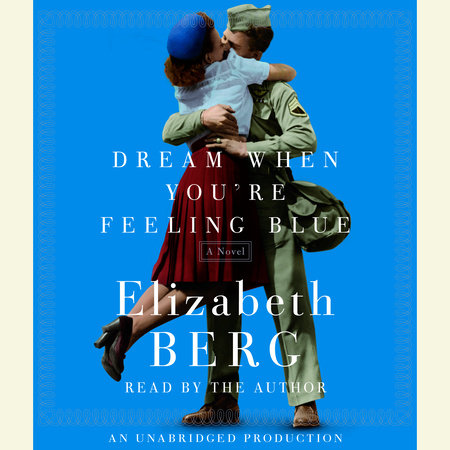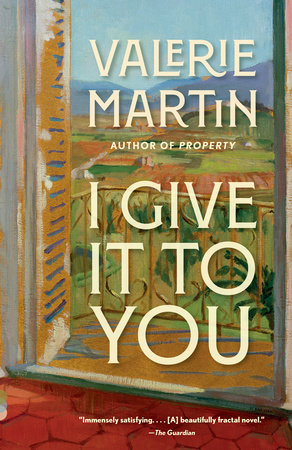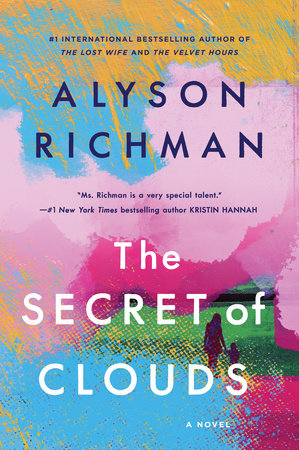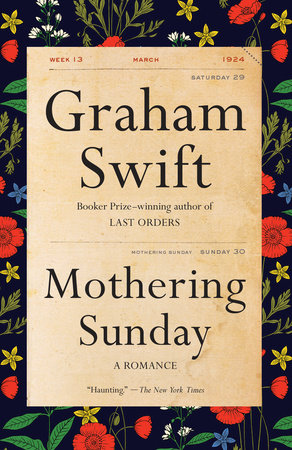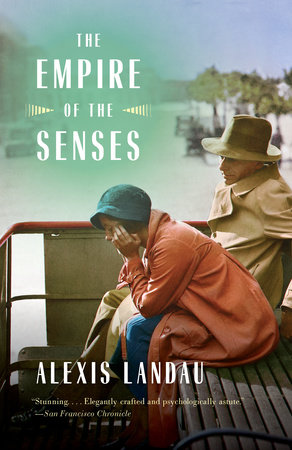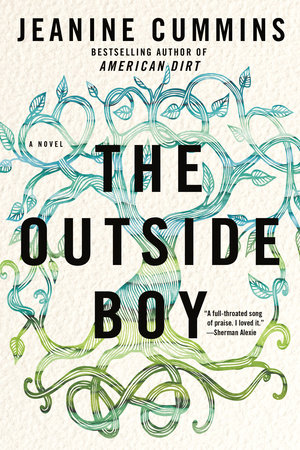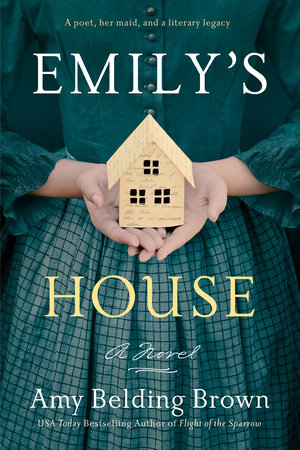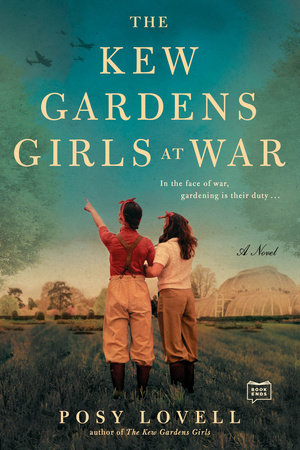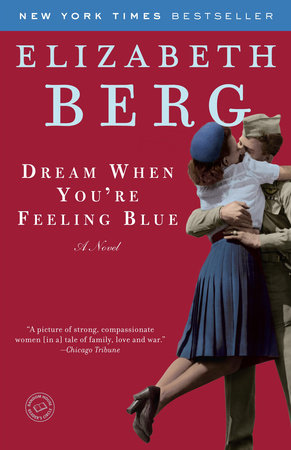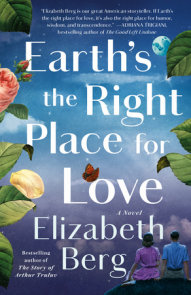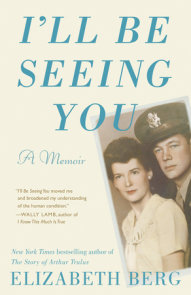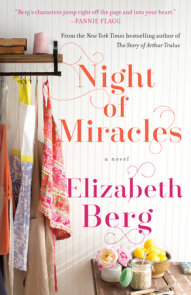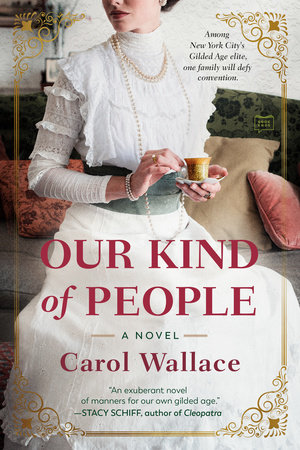Author Q&A
A Conversation with Elizabeth Berg
Random House Reader’s Circle: You set your last novel, We Are All Welcome Here, during a time when the civil rights movement was at its peak. Now, Dream When You’re Feeling Blue takes place during the Second World War. What attracted you to this period in history? Are you particularly interested in writing about tumultuous times?
Elizabeth Berg: I think conflict is one of the things that makes for a good story. It often acts as the “pull-through”–a reader wonders how things will be resolved. But what attracted me to the forties in particular? Well, one thing is that I’ve always loved the food, the fashion, the language, and the mentality (so far as I understand it) of that era. More important, we are losing the last of the “greatest generation,” and many of us have such respect and admiration for them. I wanted to write a kind of tribute to them.
RHRC: Your parents, aunts, and uncles all lived through the war. Did any of their memories or experiences influence your book?
EB: Oh, absolutely. I didn’t use things literally, but certainly their anecdotes and feelings about what life was like then very much affected what I wrote. My aunts used to talk about how exciting it was to have handsome young soldiers everywhere, and the unity of the country at the time–the way everyone supported “our boys” in very concrete ways. They described how it felt to fight over clothes and sleep three in a bed. They showed me V-mails and photographs they’d kept. They even passed along makeup techniques of the time. My mother and her five sisters have always been living examples of the great love that can exist among sisters–and in a large family. Two of my uncles were in the war, and one was on Omaha Beach on D-day. Their recollections were invaluable, and their recall amazing.
RHRC: Dream When You’re Feeling Blue is, first and foremost, a novel about sisters in a large, close-knit family. Do you have sisters? Were aspects of this story inspired by your own family relationships?
EB: I have one sister. Our relationship is different from that of my mother and her sisters. But when we did have to sleep in the same bed, I’m afraid I was guilty of yanking on her hair. Also, the character of Frank Heaney was very much inspired by my grandfather.
RHRC: You’re a Chicagoan, and the wartime city forms a vivid backdrop to the novel. What were some of the challenges and rewards of writing a novel set sixty years ago in your own backyard?
EB: It was inspiring to look at train stations and hotels and department stores and other buildings that existed then and imagine how they must have looked during the war years and think about all that went on. The challenge, when you’re writing about real places, is to not make any mistakes!
RHRC: It’s incredible to see how much has changed in the past sixty years. From gender roles to sleeping arrangements to e-mail, things are very different in America today. Can you name one thing that you think has changed for better, and one that’s changed for worse?
EB: I think our willingness to be open with our feelings and more tolerant of those whose lifestyles are different from our own is a change for the better. What’s worse is the way we’re so time-stressed. I regret the loss of a kind of innocence, a pleasure in simple things, time for people to be with one another, face-to-face. People’s word doesn’t mean as much as it used to, either, and that’s a big loss.
RHRC: Do you have a favorite character from Dream When You’re Feeling Blue?
EB: My favorite character is Frank Heaney, but his wife is a close second.
RHRC: As a writer, do you find it difficult to let bad things happen to your characters?
EB: I find it necessary. I feel as though early on in the writing process, the story starts to tell itself. In that respect, I don’t feel I “let” things happen; they just do. That said, I felt really bad when Michael died. And I cried writing the ending!
RHRC: Kitty’s decision at the end of the novel to “give” Hank to her sister Louise seems unthinkable by modern standards. What is your opinion of Kitty’s choice?
EB: The ending is something a lot of people have a hard time with. But I knew I wanted Kitty to “give” her sister her man when I first began the book (though I thought it would be Julian!). I’m hard-pressed to say why this was my goal, but for me it made perfect sense: Kitty was an immature and rather selfish young woman who really grew up in the book. She was inordinately close to Louise, and very worried about what would become of her when Michael died. She was also ambivalent about giving up her newfound independence–despite their great love for each other, after Hank came home, she and he were beginning to ravel around the edges. Hank was very clear that he wanted a homemaker wife and children, and he wanted to get started right away. Kitty felt confused about choosing a stay-home-with-children life over a working life–remember, in those days, it wasn’t often that a woman could or would do both. I met a woman at a reading who told me how much she loved the ending, and she said she knew why it had to happen: “Kitty promised Michael,” she said. And that’s true. I think, too, that Kitty thought that in time she might find another man–after all, things didn’t work out with Julian but she went on to find someone better suited to her. But then, as it happened, she never did find another man. She loved Hank all her life, and he her. Some people find that tragic–and vexing, too. But I’m not so sure that Hank and Kitty didn’t achieve a better happiness for themselves without letting go of their love for each other. Would Kitty really have been happy if she felt she’d had to sacrifice so much for her marriage? Would Hank have been happy knowing he kept Kitty from doing something she wanted to do and was good at? Would their love have turned to bitterness as the years went by? As it happened, Kitty got to have a family by having nieces and nephews; she also got to have a rewarding career. Louise would have preferred to marry Michael, but she cared deeply for Hank. Hank would have preferred to marry Kitty, but he ended up with someone he also cared deeply for and who shared his values. I’m not convinced that shades of this don’t occur all the time in relationships. Another point to consider, when looking at this ending, is the fact that it reflects the truncated feeling you have if you lose someone to war–he’s there, then he’s not. You are hurt, angry, and bewildered–and these are some of the feelings readers have expressed about the end. Writing it was taking a risk, but I have to let a book go where it wants to. The ending also showed that sacrifice doesn’t occur just on the battlefield; it reflected yet another aspect of the cost of war.
RHRC: Hattie says, “I believe that there’s a lot more than one man for me . . . and more than one woman for every man” (p. 252), but Kitty never does fall in love with anyone after Hank. Do you agree with Hattie, or do you think Kitty’s experience is more realistic?
EB: Both. In this wide world, I don’t think that there’s just one person for any of us. I think we look until we find one that feels right, and oftentimes it works out just fine. But that doesn’t mean that if we’d kept on looking, we wouldn’t have found another person who was just as good or even better. Of course, if you want to have a successful relationship, you give up searching when you find one that works. Hey, it’s like picking out tomatoes: when you find the number of good-looking ones you need, you stop digging through the bin. What would be the point in looking for more, when you have what you need?
RHRC: You’ve written many novels. Did you learn anything new by writing Dream When You’re Feeling Blue?
EB: I always learn a lot when I write a novel. In this case, I learned how wonderful it might feel to be part of a large family. How patriotism might feel good. How romantic it must have been to dress up and go to a club and dance with a soldier you might never see again to songs like “Long Ago and Far Away.” I learned about the honor in sacrifice, the value of putting someone else first.
RHRC: As a writer of women’s fiction, are there particular aspects of women’s lives that you particularly hope to depict, celebrate, or criticize in your books?
EB: I hope to show the great worth of women. So far as I’m concerned, we’re still underappreciated.
